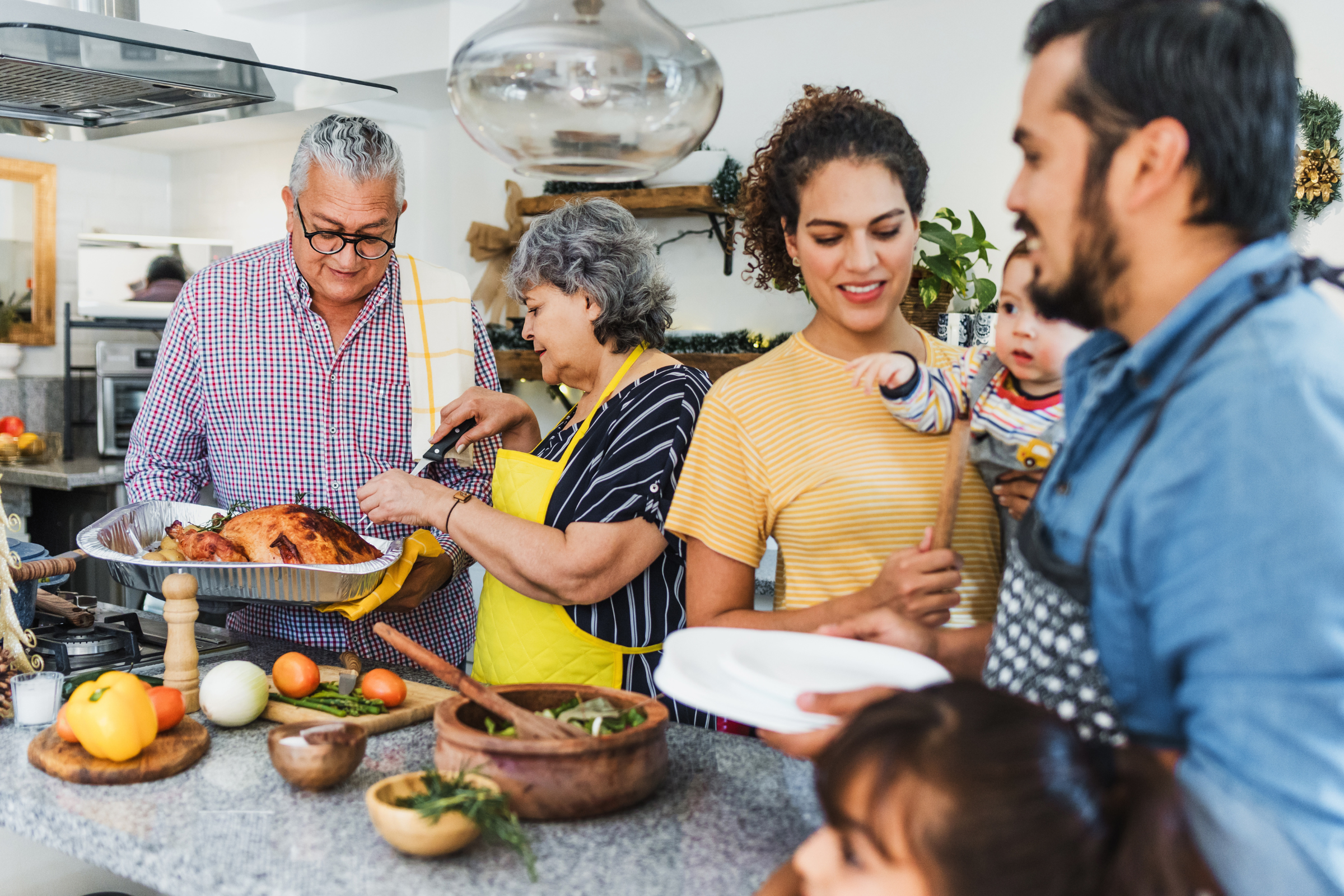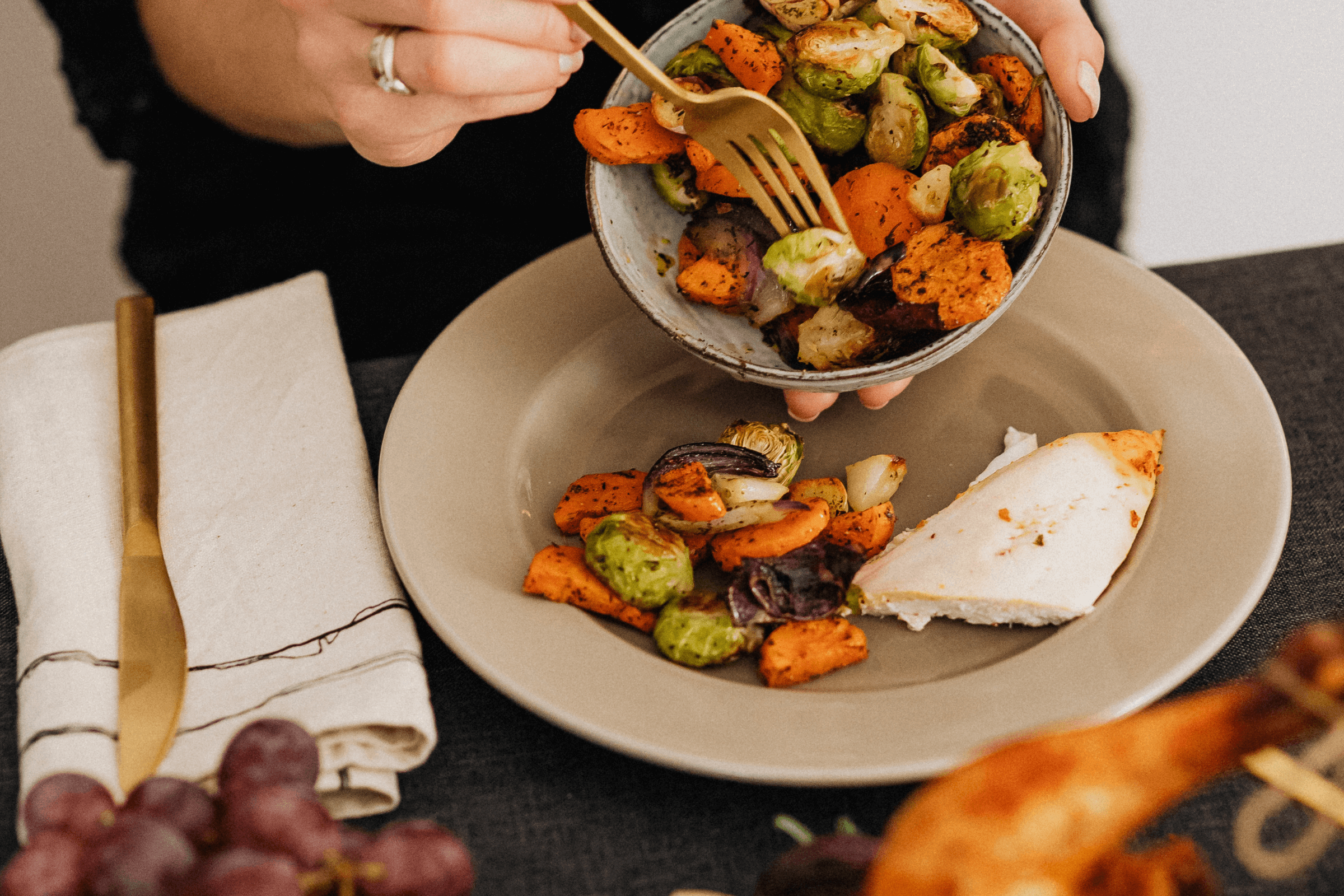
The holiday season brings joy, laughter, and togetherness—but for many, it also brings a particular kind of stress: food pushers. Whether it’s your grandmother insisting you have “just one more slice of pie,” or your coworker who won’t take no for an answer at the office party, navigating food-related pressure can feel like walking through a minefield of guilt and social expectation.
If you’re on a wellness journey, managing post-bariatric surgery nutrition, or simply trying to eat more mindfully, these moments can feel especially challenging. The good news is that you can honor your boundaries, protect your progress, and still enjoy the festivities—without offending anyone or feeling deprived. Here’s how to handle food pushers gracefully, confidently, and kindly.
Understanding Food Pushers
Before we talk about how to respond, it helps to understand why people push food in the first place. Often, it has little to do with you—and everything to do with them.
1. Love and Tradition
Many people express love through food. When someone offers you a family recipe or homemade treat, it’s often their way of showing affection. Refusing it can unintentionally feel like rejecting their gesture.
2. Cultural and Social Norms
Food is central to most holiday traditions. Turning down food can be perceived as “breaking” the social script of celebrating together.
3. Personal Insecurity
Sometimes, people feel uncomfortable when others make healthy choices. Your discipline might remind them of their own struggles, and they may (consciously or not) encourage you to “relax” so they feel better about their choices.
4. Habit and Enthusiasm
Some people are just enthusiastic hosts! They truly enjoy seeing others eat and may not realize they’re being pushy. When you understand the motivation, it’s easier to respond with empathy—while still standing firm in your decision.
Set Your Mindset Before the Event
The first step in handling food pushers happens before you even arrive at the party.
1. Clarify Your Priorities
Remind yourself why you’re making your choices. Whether it’s maintaining post-surgery dietary guidelines, stabilizing blood sugar, or avoiding trigger foods, reaffirm your “why.” When your internal motivation is strong, external pressure feels less powerful.
2. Eat Strategically
Never arrive starving. Eat a balanced snack or small meal beforehand, like a protein shake or yogurt with fruit. You’ll be less likely to overeat or cave under pressure.
3. Visualize Your Boundaries
Picture yourself at the event, confidently saying “no thank you” with a smile. This mental rehearsal can help you respond calmly in real time.
Polite, Firm, and Friendly Scripts for Saying “No Thanks”
Having a few go-to phrases ready makes it easier to respond without hesitation. The key is to stay kind but firm—you don’t owe anyone a detailed explanation. Here are some situational examples and scripts you can adapt:
1. When Grandma Offers Her Famous Pie
“It looks amazing, Grandma, but I’m full right now. Maybe later.” (Later, if she offers again, simply smile and say: “It really does look delicious, but I’m all set, thank you.”)
2. When a Coworker Pushes Office Treats
“Thanks for offering! I’m good for now, but I’ll grab some water and join you.” or “That looks great! I’m pacing myself today, but thank you.”
3. When Someone Says, “It’s Just One Bite!”
“I know! But I really don’t want to undo my progress—it’s important to me.” or “Thanks, but I’m listening to my body right now. It’s had enough.”
4. When You’re Asked, “Don’t You Like My Cooking?”
This one’s tricky because it can feel personal. “I do! You’re an amazing cook. I’m just really full, but I’d love to take some home for later.” or “Everything you make is so good. I’m just trying to stay on track with my plan.”
5. When Someone Says, “You Have to Try This—it’s Tradition!”
“I love that you make this every year! I’m skipping it this time, but it brings back great memories.” or “I’m focusing on smaller portions this year, but I really appreciate you thinking of me.”
6. When the Host Keeps Refilling Your Plate
“It was perfect—thank you so much! Everything was delicious, but I couldn’t eat another bite.” or “I’m good for now, but I might come back for more later.” (You don’t have to!)
7. When You’re Being Teased for Eating Light
“I’m just trying to feel my best through the holidays!” or “Trust me, I’ve had plenty—just taking it slow.”
Having these ready-to-go responses helps you stay in control, avoid awkwardness, and remain polite without feeling pressured to justify yourself.

Strategies Beyond Words
Sometimes, actions speak louder than words. These simple, non-verbal tactics can help defuse food pressure situations:
1. Keep a Drink in Hand
Holding a cup of water, tea, or sparkling beverage signals that you’re already “enjoying something,” which naturally reduces offers of more food.
2. Take a Small Portion—If You Want
If it feels easier socially, you can take a small portion to honor the gesture without overindulging. Even a small taste can satisfy both you and the person offering.
3. Change the Subject
Redirect the conversation to something positive and unrelated to food. Compliment the décor, ask about their holiday plans, or share a story. It shifts attention away from what’s on your plate.
4. Bring a Dish You Can Eat
If you’re attending a potluck or family dinner, contribute something that fits your dietary needs. That way, you’ll always have a safe option and can politely decline other dishes without feeling
deprived.
5. Enlist Support
If you know a supportive friend or family member will be there, let them know ahead of time what you’re working on. They can help change the subject, back you up, or simply give a reassuring smile.
Some people won’t take no for an answer, no matter how polite you are. When that happens, remember: your health and boundaries matter more than someone else’s momentary disappointment. If the pressure continues:
- Repeat your “no thanks” calmly—consistency reinforces your boundary.
- Use humor: “If I eat one more thing, you’ll have to roll me home!”
- Step away: Take a short walk, help in the kitchen, or mingle elsewhere.
You are not obligated to eat something to make someone else feel comfortable. The holidays are about connection, not consumption. Instead of seeing food pressure as an obstacle, think of it as an opportunity to strengthen your confidence and communication skills. Every time you honor your boundaries, you reinforce trust with yourself.
Focus on the parts of the holidays that truly feed your soul: conversation, laughter, music, games, traditions, and connection. Food is just one part of the celebration—it doesn’t have to control your experience.
Handling food pushers at holiday gatherings is a balancing act between kindness and self-respect. The key is to stay gracious but grounded. You can express appreciation without giving in, protect your progress without guilt, and still enjoy the festivities.
Remember:
- You don’t owe anyone an explanation for your food choices.
- A polite “no thanks” is a complete sentence.
- Boundaries are a form of self-care, not selfishness.
When you approach these moments with confidence, compassion, and a little preparation, you’ll find that you can enjoy the holidays on your own terms—feeling satisfied, not stuffed, and proud of the boundaries you’ve maintained.
